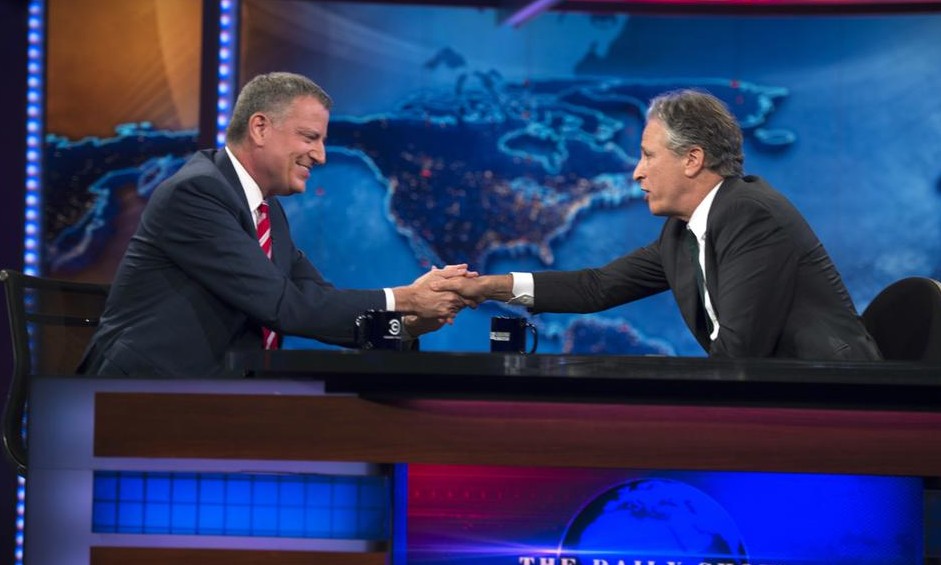When New York City Mayor Bill de Blasio appeared on The Daily Show with Jon Stewart last year, discussion centered around differences between the progressive de Blasio—then only three weeks into his new job—and his conservative predecessors, Michael Bloomberg and Rudy Giuliani. When asked about stop-and-frisk policy, de Blasio said “you can’t break the law to enforce the law” and advocated policing with respect for the community. But Stewart also squeezed in jokes at de Blasio’s expense aimed at his tendency to eat pizza with a fork and knife. On the whole, de Blasio seemed ready to tackle inequality and bring a progressive government to New York City.
During his appearance on The Daily Show last night, de Blasio was different from a year and four months ago. The interview was much drier, yet significantly more substantial. Ready to combat “the crisis of our time,” de Blasio outlined his Progressive Agenda to reduce income inequality. He supports a universal $15 minimum wage, explaining that $8.75 is not enough to live on in New York City or anywhere else. He also supports increasing taxes for the wealthy because he believes the concentration of wealth prevents reinvestment in future growth.
The televised portion of the interview ended on talk of affordable housing, which de Blasio hopes will break up the poverty-stricken neighborhoods that have been left as remnants of “segregationist” and racist policies. Stewart referenced the Mayor’s plan to bring two hundred thousand units of affordable housing to the city, which, Stewart joked, “would bring the total to two hundred thousand.”
In the online segment of the interview, Stewart pointed out that shootings have risen twenty percent since stop-and-frisk was discontinued. De Blasio attributes the shootings to gang activity, which his administration plans to decrease with community gang recruitment intervention. With police reform, de Blasio’s goal is for the community to trust police and for police to take pride in their communities. However, de Blasio isn’t ready to tackle gun control, which he indicated only comes after the “unifying force” of progressive economics takes hold. The interview concluded on the subject of trickle-down economics, with Stewart suggesting that riches don’t trickle down while poverty does.
Stewart’s interview with de Blasio last night diverged from last year’s in that it presented us with a more experienced and accomplished leader. The Mayor has made progress on crime, economic inequality, and community-police relations — progress that other mayors should strive to emulate.

